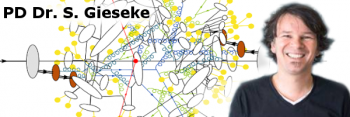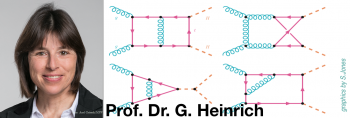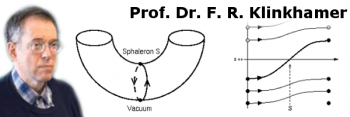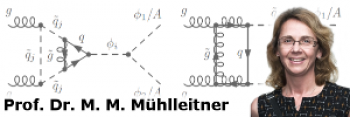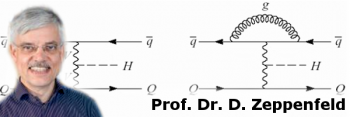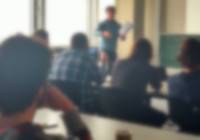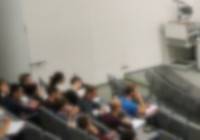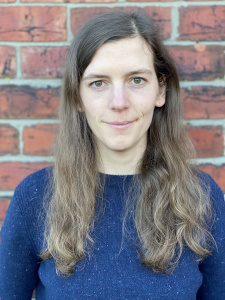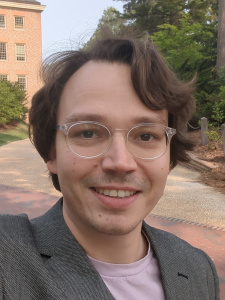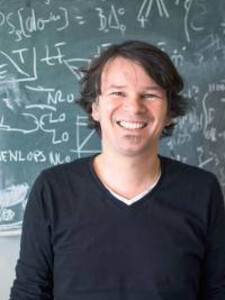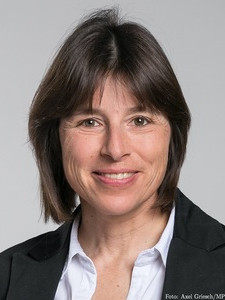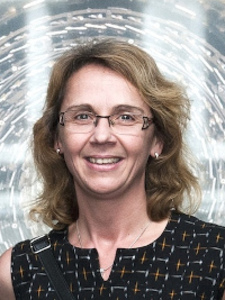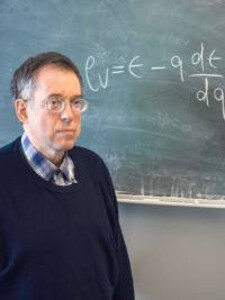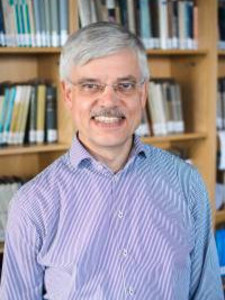Welcome to the Institute for Theoretical Physics (ITP)
|
Quick-Links: Lectures, Bachelor's and Master's Theses, Completed PhD Theses, Research and Applications.
|
Bachelor's & Master's Theses at the ITP
If you are interested in doing your Bachelor's or Master's thesis on the topic of theoretical particle physics at the ITP, feel free to drop by on the 12th floor and talk to us or send us an e-mail. To get an idea of what we are working on, you can check out the research page of each group, or you can have a look at the completed Bachelor's and Master's theses at our institute.
Job Openings
For open PhD or postdoc positions at the ITP, check the Job Openings page or the News & Events ticker below.
News & Events
|
|
13.02.2025: ITP Seminar (posted on: 13.02.2025) In the last ITP seminar of this semester (Thursday, 13.02., 13h30), Bakar Chargeishvili will talk about “From Quarks to Queries: Large Language Models as Emerging Tools in Particle Physics”. The seminar will take place in room 12-01. |
|
|
06.02.2025: KCETA Particle Physics Colloquium (posted on: 06.02.2025) In the last KCETA colloquium of this semester (Thursday, 06.02., 15h45–17h00), we will have Prof. Andrea Caputo (Sapienza U. of Rome & CERN-TH) giving a talk on “From the ionosphere to dwarf galaxies, chasing new particles”. The colloquium will take place in Kleiner Hörsaal A. |
|
|
06.02.2025: ITP Seminar (posted on: 06.02.2025) In the upcoming ITP seminar (Thursday, 06.02., 13h30), Stefano Di Noi will talk about “Phenomenological aspects of the Standard Model Effective Field Theory in Higgs physics”. The seminar will take place in room 12-01. |
|
|
30.01.2025: KCETA Particle Physics Colloquium (posted on: 30.01.2025) In the upcoming KCETA colloquium (Thursday, 30.01., 15h45–17h00), we will have Prof. Yotam Soreq (Technion) giving a talk on “Exposing Hidden Sectors”. The colloquium will take place in Kleiner Hörsaal A. |
|
|
30.01.2025: ITP Seminar (posted on: 30.01.2025) In the upcoming ITP seminar (Thursday, 30.01., 13h30), Stefan Kiebacher will report “On The Phenomenology Of Hadronization And Colour Reconnection”. The seminar will take place in room 12-01. |
Research Groups at the Institute for Theoretical Physics
The Institute for Theoretical Physics (ITP) consists of seven research groups.
Their activities are described below.
Anke BiekötterResearch interests: Exploring physics beyond the Standard Model with effective field theories, SMEFT, axion-like particles, global fits; modern analysis techniques, machine learning. |
Jens BoosResearch interests: We connect black hole phenomenology (optical and gravitational wave signals) to new physics (non-singular black hole models, early universe phase transitions, and post-Riemannian gravity and spacetime torsion). |
Stefan GiesekeResearch interests: The simulation of exclusive final states at colliders with Monte Carlo Methods. Our research aims at the best possible description of all possible final states, first and foremost at the Large Hadron Collider but possibly also for collisions of electrons and positrons or hadrons when they are hit by cosmic particles at very high energies. We improve the standard model description, mostly of the strong interaction (Quantum Chromodynamics, QCD) with systematic perturbative methods or with models for strong hadronic interactions. |
Gudrun HeinrichResearch interests: Exploring the Higgs sector: finding hints about New Physics through precision measurements requires precision calculations, which we do both within and beyond the Standard Model. We combine Effective Field Theory parametrisations of BSM effects with higher order corrections and perform studies of anomalous couplings. Scattering amplitudes: we aim to largely automate the calculation of scattering amplitudes beyond one loop. An important aspect is the numerical evaluation of multi-loop Feynman diagrams, and a better understanding of their mathematical structure. |
Milada M. MühlleitnerResearch interests: Collider physics, phenomenological investigations of models beyond the Standard Model, including precision calculations to Higgs observables, namely production (single and double Higgs) and decay processes; cornering the validity of the models considering theoretical and experimental constraints; baryogenesis and Dark Matter. |
Emeriti
Frans R. KlinkhamerResearch interests: Fundamental aspects of quantum field theory, in particular gauge field theory. Structure of spacetime, both at very large and very small length scales. Cosmological constant problem. |
Dieter ZeppenfeldResearch interests: Collider physics; QCD corrections; effective field theories; models of electroweak symmetry breaking; phenomenological investigations of mixed QCD/electroweak processes in hadronic collisions, e.g. vector boson scattering, weak boson pair production, etc. |



